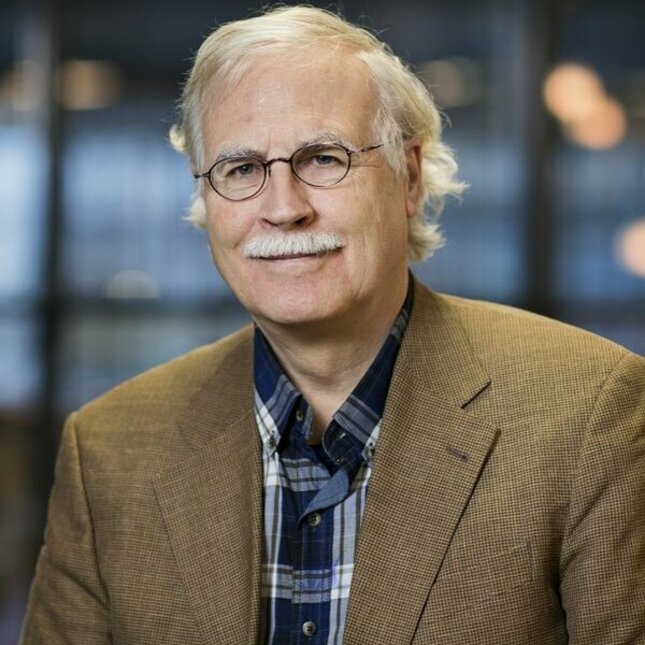
The TU/e website describes him as ‘Professor Emeritus of Biomedical Image Analysis’. But this title captures only a tiny aspect of this extraordinary man. It is just one of the many positions he has held in an illustrious career that led him to some unique places and encounters.
Bart himself may be retired, but his thirst for knowledge and fascination with artificial intelligence and deep learning are as active as ever. He writes about them, programs systems, and immerses himself in the subject matter with an enthusiasm more characteristic of a student just starting out. He has spent much of his career working with talented young people. Bart: “I just love working with young people. It’s energizing. And I’m incredibly proud of all the people I have the honor to work with, making their dream a reality”. He still continues to give guest lectures and contribute to summer schools across the world, sharing his impressive knowledge and experience with new generations.
Medical imaging
Bart’s expertise is in medical imaging. To summarize it briefly, this specialization is all about systems that analyze scans and images based on AI and deep learning. Thanks to this deep learning, the results are improving all the time, helping medical doctors to make diagnoses and provide tailored treatments. Bart’s current focus is on ‘brain-inspired computing’: “On average, the human brain consumes 25 W. A computer consumes many times that, despite actually doing less. This fact alone should be sufficient to make us take a closer look at the brain. What happens within it is simply mathematics, and therefore ideal for computers. You just need neuroscientists and computer experts to get together and learn to understand each other. That would enable us to make a lot more progress.”
Advice for up-and-coming scientists
Bart’s ‘secret ingredient’ for a great academic career: “Do an internship abroad. It not only teaches you more about your future field of work, but you also learn to plan and cope independently. You develop your social skills and your network. International experience has a value that cannot be expressed in monetary terms. I recommended it to all my students.”
Bart himself has also spent a lot of time abroad. It started at an early age, when he hitchhiked through America during the hippie era. Together with his wife, he visited the most exotic places, deliberately avoiding the well-trodden tourist trails. It resulted in some breathtaking photographs and adventures.
Diagnosing diabetes using retina scans
His career even took him to China, where he worked on a new method for diagnosing diabetes. Bart: “Diabetes is difficult to diagnose, but the early signs can be seen in the blood vessels. They start to leak and new, smaller ones appear. Normally, you can’t see that because the blood vessels are underneath the skin. But they show up clearly on high-resolution images of retinas, even in the very early stages. In China, we managed to collect large numbers of these photos, which we then analyzed and used to improve the system. We used the results to help doctors to speed up diagnoses. That's invaluable, because Chinese doctors are always busy. There are too few of them and the hospitals are almost always full. So, it’s great that technology can play a role in helping people, isn’t it?”
Donating to enable more students to learn
In the coming years, Bart will be donating to the fund as a means of giving the next generation of scientists the space they need to develop: “A PhD student costs a lot of money. It can easily set you back € 250,000. And that primarily gives you a basis in hard skills. An internship abroad gives you so much extra, including the essential soft skills.
I would love it if, thanks to my contribution, a talented student will be able to afford that kind of international internship that is so enriching in every respect.”